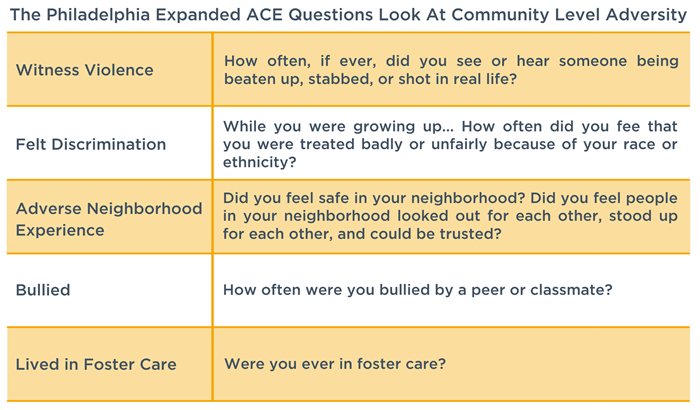A study conducted by Kaiser Permanente in 1998 looked at how adverse childhood experiences, also known as ACEs, were linked to adult mental health and wellbeing. This study consisted of 10 ACE focused questions that addressed issues ranging from having a parent with a mental illness to witnessing domestic violence. Today, we use these ground-breaking results in our trauma-informed practices to help build resiliency with youth in foster care and beyond.
The 1998 study consisted of predominantly white, middle to upper class participants and focused on experiences in the home. In 2012 and 2013, the Philadelphia ACE Project expanded the study to look at how living in an urban area might bring on added stressors not covered in the original research. The study created by the Philadelphia ACE Project collected five additional measures focused on community-level adversity and expanded participants to include a socioeconomically and racially diverse urban population.
Results from the study showed that 7 in 10 adults experienced one ACE, and 2 in 5 had experienced 4 or more. The results also showed that 40% of Philadelphians had experienced 4 or more community-level ACEs.
The following graphic shows the community-level questions asked during the study:

As we look at the children who receive services through social service programs, we recognize that they have experienced significant community-level adversities that can lead to engaging in risky health behaviors. As foster parents and care givers we can help by reaching out therapists that are trauma-informed and understand the community level needs of the children. Reach out to your support team or family advocates to assist you in identifying resources.
To learn more about the study go to https://www.philadelphiaaces.org/philadelphia-ace-survey



